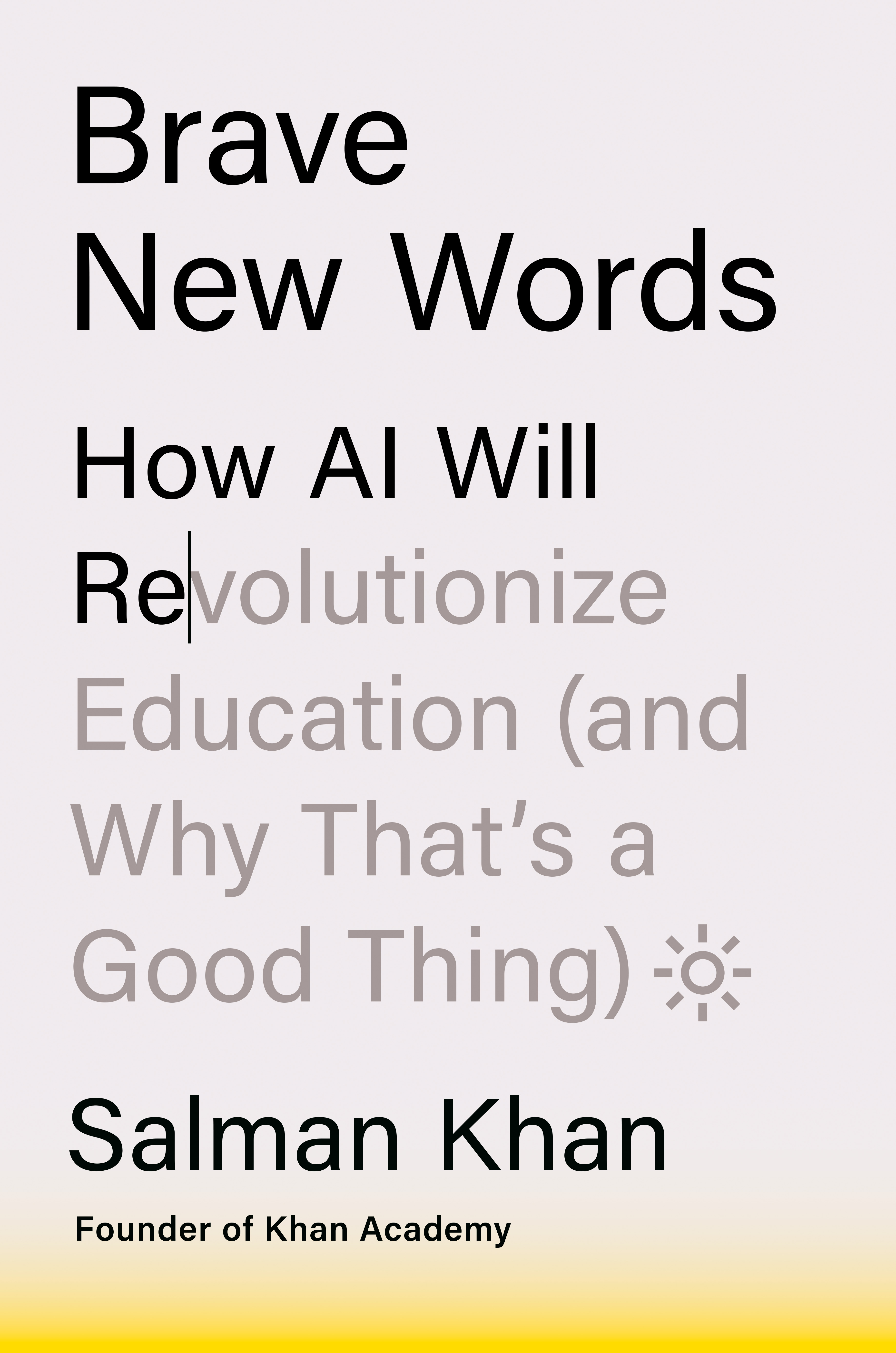
Brave New Words: How AI Will Revolutionize Education
Salman Khan
About the Author

Salman Khan
Questions & Answers
AI will revolutionize education by personalizing learning experiences and enhancing teacher support. AI tutors like Khanmigo can provide tailored instruction, answer questions, and offer feedback, closing learning gaps and improving student engagement. For educators, AI can streamline lesson planning, monitor progress, and offer real-time feedback, reducing burnout and increasing efficiency. AI will also facilitate collaborative learning, support student mental health, and bridge the global education divide, making quality education accessible to all. However, it's crucial to address concerns like cheating, bias, and data privacy to ensure AI's benefits are maximized and its risks mitigated.
Integrating AI into education raises several ethical considerations and challenges. One major concern is the potential for AI to enable cheating, as seen with ChatGPT. This necessitates the development of safeguards to prevent misuse and ensure academic integrity. Another challenge is the potential for AI to exacerbate existing inequalities in education, as access to AI tools may be unevenly distributed. Additionally, there are concerns about data privacy and the collection of personal information on students. Ensuring transparency in AI decision-making and addressing biases in AI algorithms are also crucial. Lastly, the impact of AI on the role of teachers and the overall learning experience must be carefully managed to maintain a human-centered approach to education.
AI can significantly bridge the global education gap by providing access to quality education for all through several means:
-
Personalized Learning: AI tutors like Khanmigo can offer personalized learning experiences, adapting to individual student needs and learning styles, thereby addressing the limitations of traditional one-size-fits-all education.
-
Global Accessibility: AI platforms can be accessed via smartphones and the internet, making education accessible in remote or underserved areas where traditional educational resources are scarce.
-
Language Support: AI can support multilingual learning, making educational content available in various languages, thus reaching a broader audience.
-
Cost-Effectiveness: AI can reduce the need for human tutors, making education more affordable and scalable.
-
Enhanced Learning Outcomes: AI can provide immediate feedback and support, helping students learn more efficiently and retain information better.
-
Teacher Support: AI can assist teachers by automating administrative tasks, creating lesson plans, and providing real-time insights into student progress, thereby enhancing the quality of education.
-
Alternative Education Models: AI can support alternative education models, such as homeschooling, by providing comprehensive resources and support.
By leveraging these capabilities, AI can play a crucial role in ensuring that quality education is accessible to everyone, regardless of their location or background.
In the age of AI, teachers will play a crucial role as facilitators and mentors. AI will augment their abilities, not replace them. Teachers can adapt by:
- Embracing AI as a tool: Use AI for lesson planning, grading, and personalized learning, freeing up time for deeper engagement with students.
- Raising expectations: Expect more from students, as AI can assist with basic tasks, allowing for more complex learning activities.
- Flipping the classroom: Use AI for pre-class learning, enabling more interactive and collaborative in-class experiences.
- Integrating AI into assignments: Encourage students to use AI for research, writing, and analysis, fostering critical thinking and creativity.
- Building relationships: Maintain strong connections with students, as AI can provide support but cannot replace human empathy and understanding.
To prepare students for the AI-future workplace, it's crucial to focus on both technical and soft skills. Students should learn foundational skills like reading, writing, arithmetic, and a broad understanding of subjects like history, art, science, law, and finance. This will provide a strong base for specialization and adaptability.
Additionally, soft skills such as communication, collaboration, empathy, and problem-solving will be vital. Encouraging students to engage in active learning, collaborative projects, and real-world problem-solving will help them develop these skills. Familiarizing students with AI tools and understanding how to use them effectively will also be essential. This includes learning how to leverage AI for productivity and creativity, as well as understanding the ethical implications of AI. By fostering a balance of technical expertise and soft skills, students will be well-prepared to thrive in the AI-driven future workplace.